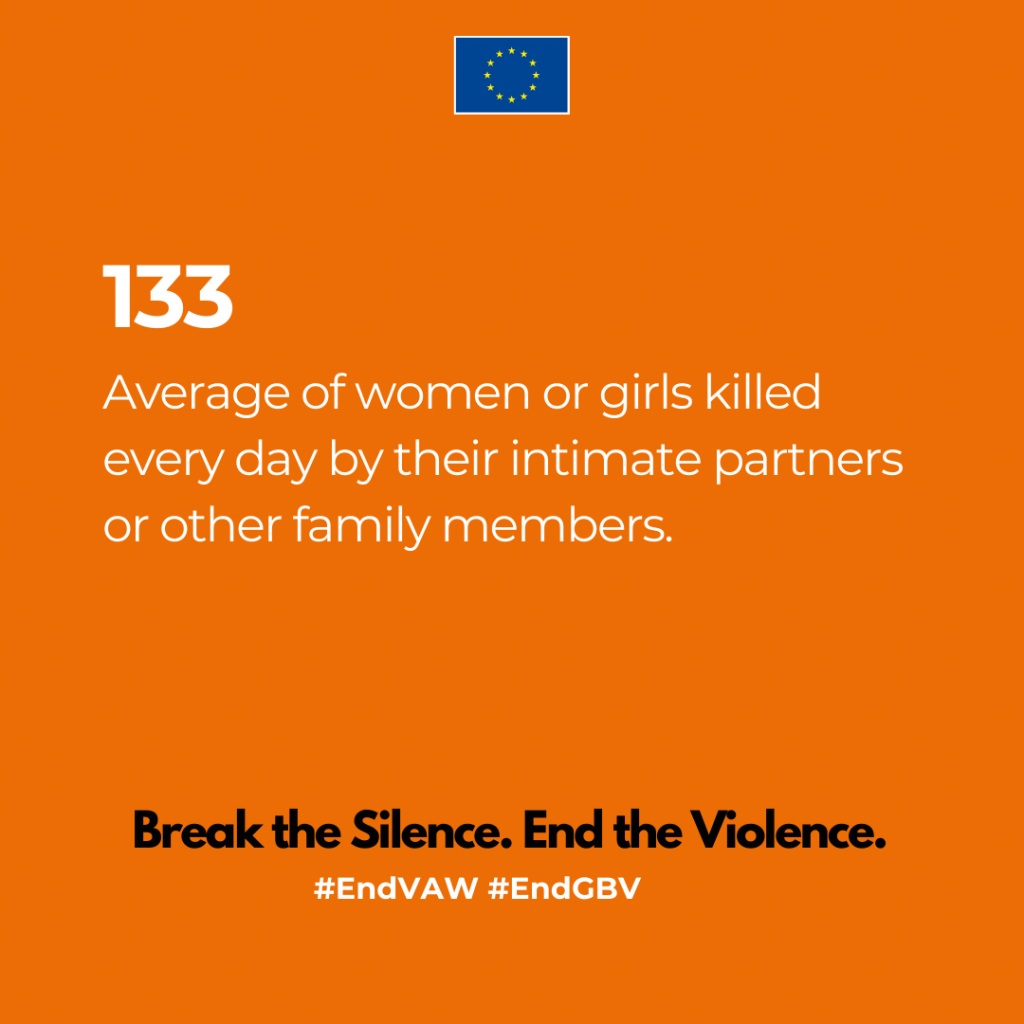In observation of the International Day for the Elimination of Violence Against Women, held November 25, Greek authorities reveal that violence against women has soared in 2024, prompting the Greek government to launch a new Risk Tool.
The tool comes after a year of brazen femicides in Greece, including the murder of a young woman just outside a Greek police station. The incidents have raised serious questions about the government’s commitment to protecting women, and highlights the many systemic failures that led to the womens’ murders.

An image of Kyriaki Griva, a young woman who was murdered by her former boyfriend just outside of a Greek police station in 2024. She had entered the police station seeking help but was turned away.
Violence Against Women in Greece in 2024
Greek police report that violence against women spiked in 2024, up from 9,860 incidents in 2023 to 18,427 incidents from January to November 2024. According to the Greek police, 15,571 of the victims were women and 5,583 were men, while the perpetrators were overwhelming men. Related arrests are also up from 6,453 persons in 2023 to 11,308 from Jan-Oct in 2024.
At the start of 2024, a 41-year-old pregnant female was murdered by her partner in the northern Greek region of Halkidiki.
Meanwhile, just two weeks ago, another woman was shot at point-blank range in the abdomen by her former partner in the city of Agrinio in western Greece.
Considered in a global context, sobering data from UN Women shows that “One in three women worldwide experience physical or sexual violence, mostly by an intimate partner.” Meanwhile, the European Commission estimates that 133 women are killed every day by their partners or other family members.

The latest victim of femicide in Greece had sought protection from the police and legal action against the man who killed her.
Yet identifying the true scale of domestic violence remains a problem throughout the world, as victims are often hesitant to come forward due to lacking legal frameworks, inadequate protection for victims, a belief that nothing will change, and more. It results in underreporting of incidents.
Yet, UN Women stresses that the existence of domestic violence legislation makes a difference, with countries with legislation in place posting lower rates of intimate partner violence (9.5 percent against 16.1 percent).
Greece has a series of laws in place addressing domestic violence, sexual harrassment, trafficking, rape and sexual offenses, stalking and cybercrime, with yet with varying rates of effectiveness.
However, while 18 EU member states have an official body to record femicides, collect data, and record and analyze the social characteristics of femicides, Greece does not.
Greece’s New ‘Risk Tool’

In observation of November 25, Greece has announced the launch of a new ‘Risk Tool’, which aims to better assess how dangerous an abuser is.
General Secretariat for Equality and Human Rights Katerina Patsogianni told SKAI that the tool takes a page from the UK’s playbook and is essentially a questionnaire developed by criminologists in collaboration with Scotland Yard.
Patsogiannis says that in regards to several fatal incidents of violence against women, the perpetrators had not been deemed dangerous enough, which is why only minor restraining orders were issued. “With the Risk Tool, such oversights will be a thing of the past.”
The tool is being “rolled out nationwide in Greece, including at police stations, the General Secretariat for Equality’s Counseling Centers, the 15900 (24-hour SOS Line), and even hospitals,” said Patsogiannis to SKAI.
The tool is added to Greece’s 15900 hotline, where victims can speak directly with experts on gender-based violence, the country’s 44 counseling centers where they can obtain psychological and legal support, and Greece’s panic button system.
About the International Day for the Elimination of Violence against Women
November 25 has been observed as as a day against gender-based violence since 1981 and is symbolized through the color orange and purple. This date was selected to honour the Mirabal sisters, three political activists from the Dominican Republic who were brutally murdered in 1960 by order of the country’s ruler, Rafael Trujillo (1930-1961).
The day raises awareness of violence against women and girls, including domestic violence (physical, emotional and sexual), sexual assault (including rape, exploitaion and violence in war zones), human trafficking and harrassment. It also addresses the more intractable problems of economic and structural violence against women which limit women’s economic independence, and cultural and systemic violdence, like female genital mutilation (FGM), child marriage and honor killings, all routed in cultural and systemic misogyny.
The United Nations highlights the day’s inseparable link to human rights, launching the UNiTE campaign (Nov 25–Dec 10), which calls for accountability, action, and revitalized commitments to combat violence against women.
The 2024 campaign, titled “Every 10 Minutes, a Woman is Killed. #NoExcuse”, seeks to spotlight the urgency of the crisis.
The Day on Social Media
European Parliament’s President Roberta Metsola started the day with a post on X, wearing orange, stating her resolve to protect women from abuse and murder and calling for stronger protection and futher convictions of offenders.
Meanwhile, European Commission President Ursula von der Leyen shared an image of the Commission building illuminated in orange, symbolizing solidarity.
Key hashtags for the day are #NOEXCUSE #OrangeTheWorld #ViolenceAgainstWomen Day #EndVAW #EndGBV



